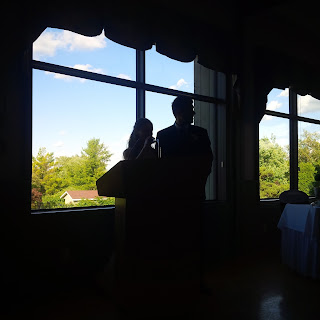First of all, why am I bringing this up? Because it's so important and so overlooked. People want scientific evidence to prove something. If there's evidence, it's right. - This is today's mentality; we want proof for everything, just where different people get that proof is a different story.
One day, I will be a scientist, and this will be part of my everday life.
So let's deal with it right now and here.
Any arguments on specific issues almost always end up having something to do with some sort of discussion on "evidence."
"Where's the evidence"?
"Science says this..."
"Of course this is true; the geological column says it all"!
This whole scientific logic is flawed!
As my teacher recently stated in class (and as I have thought so many times over), "Science is all theories; they can be "disproved" at any time." Even tomorrow, some established scientific theory could suddenly be "wrong"! (Even scientific laws have been disproven!)
Yes, you can say that a scientific theory is different from a "normally-constructed" theory, and it is; a scientific theory is "proven" by tons of observations and experimentation, whereas a theory to an average person would be more of a scientific hypothesis. But the reality is that it is science!
It is observed and constructed and experimented through human senses and intelligence, and as we know, humans are imperfect. Flawed. Every piece of evidence is seen through human understanding, which is a tiny, tiny fraction of what actually goes on in nature.
There is no such thing as "evidence," really. It is just a form of trying to understand what goes on in life. We will never even come close to understanding and explaining everything in life. It's just too much for our puny little brains to understand.
So that's why I don't put my faith in science. Yes, I can learn about it, and marvel at how we think things work, but we might be thinking it all wrong. What we learn may be completely different from how it actually is; perhaps we may come up with some novel tools to help explain it more accurately, or to disprove something, but those novel tools could end up being replaced by other more highly intelligent tools (which could negate current results). We really will never be completely sure about the scientific realm. Ever.
Biblical Reference
(Just for curiosities sake; I was writing this post before I read these verses, but I thought they fit perfectly for my little lecture)
I. Corinthians 13: 9 - For we know in part, and we prophesy in part.
I. Corinthians 13: 12 - For now we see through a glass, darkly;...
Ecclesiastes 3: 11 - ...he hath set the world in their heart, so that no man can find out the work that God maketh from the beginning to the end.
And yes, I am writing (or rather, finished writing) this at 1:30 am; that's when my thoughts seem to run the best. :D






































